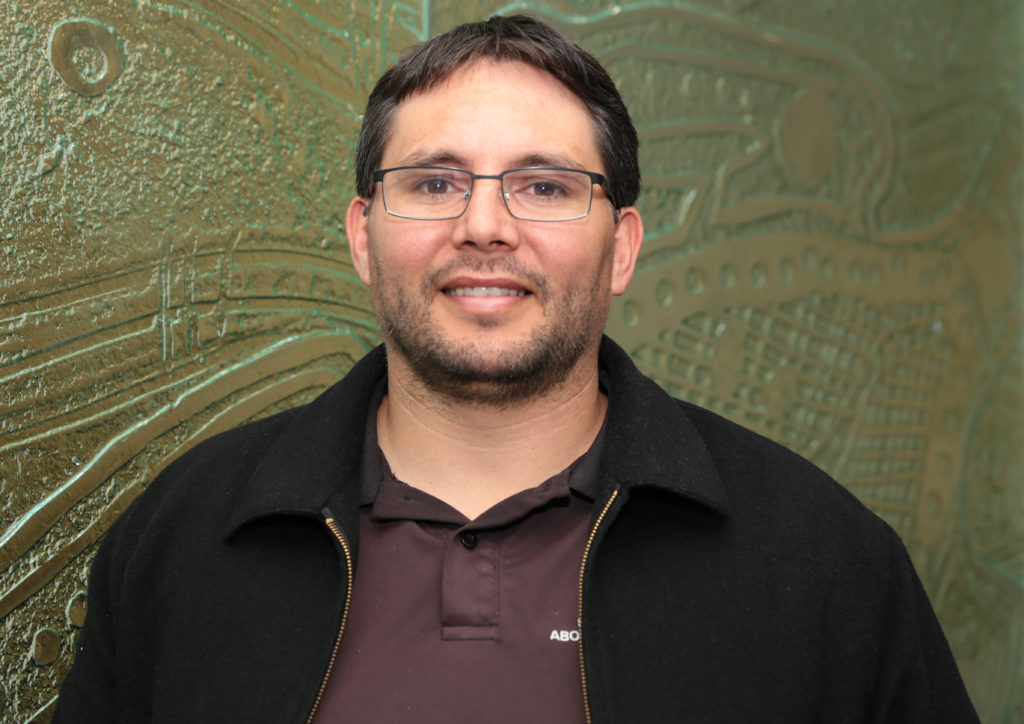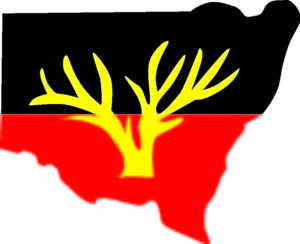8 September, 2016
“Building a relationship with the LALCS and having mutual trust is essential” – Trent Lynwood.
I was born in Cronulla but I grew up in Coffs Harbour and my family on my grandmother’s side is the King family from Lismore, from the Bundjalung tribe. On my dad’s side, they’re Dunghutti from Kempsey and a place called Fattorini Island. Mum’s side is based around Cronulla, German heritage.
I was pretty good at school and loved maths. I took a shine to accounting, so I did a degree in accounting and ended up working for Rio Tinto. I spent some time on a site up at Gladstone and just got homesick, I really wanted to come home. There was a job with an Aboriginal company in Grafton through an Economic Development Officer program. I applied for it, and got to move back home. But when ATSIC shut down, that program ended. I applied with a Finance Officer position with NSWALC at Coffs Harbour in 2004, and got it. And so my involvement with the Land Rights network began.
Around 2008 a new position of Operations Manager was created in the Zones, as a second-in-charge to the Zone Director. I had been doing finance and accounting work for some time, and my love of people won out over my love of numbers in the end. I had been doing a lot of support with the LALCs and built my knowledge around the Act, so I put my hand up for the role and won it. Being in Coffs Harbour, I had a lot of mob around it was just great to be able to get out, meet and get to know a lot of people.
I’ve been a Zone Director for around 18 months now, so I’m still relatively new. I’m trying to carry on the excellent work of the former Director, Andrew Riley. I really see how important relationships are to offering the best support I can. Building a relationship with the LALCs and having mutual trust is essential to being able to discuss and solve difficult issues together.
The biggest highlight for me so far has been the Mid-Coast Water deal with Forster LALC. The CEO and I put a lot of work into that. It’s probably the first deal of its kind in New South Wales and will be one that will be a model for other Land Councils to use. It was about Forster township gaining access to the water, so a supply could be assured for the Great Lakes Township. No-one’s been able to sell land and then negotiate an access agreement to be able to use it whenever they want, before this. That built a lot of good relationships within the town and was a key factor in the LALC agreeing to sell the land. Forster Land Council also still has a water licence for the area.
The deal took nearly 15 years to come to fruition. And again, the key factor was relationships and really working hard to find “the win” for every stakeholder. During that time, there were falling outs. The LALC wouldn’t talk to Mid Coast Water. Mid Coast Water would just go on LALC land and drop down water bores, and it was extremely difficult at one stage there. But the CEO persisted, and agreements were struck, and the LALC has a lot of money in the bank now because of it.
But a big challenge that all LALCs have, is continuing to engage members. We’re seeing a drop-off in engagement at LALC meetings, and we’re seeing fewer young people involved. For NSWALC and the network, that’s a big challenge. To grow the membership and build up the next generations of Land Rights warriors so they can continue with the fight in the future.
The strength of Land Rights is not with individuals. It’s with the community, with all of us being a part of it. Strength in numbers. We need to keep getting the message out, and inspire people to keep walking the land together.



